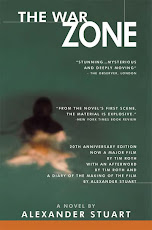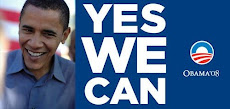
Obama takes the fight to McCain
By Josh Chaffin in New York and Edward Luce, Andrew Ward and Stephanie Kirchgaessner in Denver
Published: August 29 2008 00:22 | Last updated: August 29 2008 04:58
Barack Obama accepted the Democratic nomination for president on Thursday night with a hard-hitting address at a 75,000-seat stadium that blended flashes of the Illinois Senator’s soaring rhetoric with a litany of policy proposals intended to ease the lives of a struggling middle class.
Mr Obama, the first African-American to win a major party nomination for president, said the country was at a crossroads after eight years of Republican rule, and challenged voters to raise their expectations: “America, we are better than these last eight years. We are a better country than this.”
At the same time, he sharpened his attacks against Republican Senator John McCain, questioning his judgment and linking him to an unpopular president, George W. Bush. In spite of his maverick reputation, McCain had voted with President Bush 90 per cent of the time, Mr Obama said.
Barack Obama’s speech
“This moment – this election – is our chance to keep, in the 21st century, the American promise alive. Because next week, in Minnesota, the same party that brought you two terms of George Bush and Dick Cheney will ask this country for a third. And we are here because we love this country too much to let the next four years look just like the last eight. On November 4th, we must stand up and say: ‘Eight is enough.’”
Read the transcript
“Senator McCain likes to talk about judgment,” Mr Obama said. “But really, what does it say about your judgment when you think George Bush was right more than 90 per cent of the time? I don’t know about you but I’m not ready to take a 10 per cent chance on change.”
In a thinly veiled reference to Mr McCain’s reputed short temper, Mr Obama said: ”if John McCain wants a debate about who has the judgment and the temperament to be commander-in-chief then that’s a debate I’m willing to have.” And, in what was one of his most popular new lines of the evening – to judge by the audience’s reaction – he added: “John McCain liks to say he will follow Osama Bin Laden to the gates of hell but he won’t even follow him to the cave where he lives.”
Mr Obama’s speech marked the culmination of a four-day convention in which Democrats appeared to heal the divisions of a bitter, 18-month primary campaign in which he defied expectations to defeat New York Senator Hillary Clinton.
Mr Obama spoke under clear skies – in spite of prayers for rain by some evangelical Christians opponents – and amid signs that the convention had yielded a bounce in the polls. The Gallup daily tracking poll – one of the most closely watched measures of the presidential race – on Thursday showed Mr Obama leading Mr McCain by 48 per cent to 42 per cent, having started the week level.
Soon after he took the podium, Mr Obama paid tribute to the Clintons, who set the stage by laying aside personal disappointments to deliver forceful endorsements on the previous two nights of the convention.
Mr Obama then turned his attention to the economic anxieties of middle class America.
“Tonight, more Americans are out of work and more are working harder for less. More of you have lost your homes and more are watching your home values plummet. More of you have cars you can’t afford to drive, credit card bills you can’t afford to pay and tuition that is beyond your reach,” he said.
“These challenges are not all of government’s making,” he said. “But the failure to respond is a direct result of a broken politics in Washington and the failed presidency of George W. Bush.”
Trying to acquaint himself with skeptical, working class voters and women, Mr Obama recounted his humble upbringing, and the grandmother who rose from the secretarial pool “despite years of being passed over for promotions because she was a woman” and the single mother who scraped by to send him to the best schools in the country.
Yet Mr Obama moved beyond these images to tell voters, in his words, “exactly what that change would mean if I am President.”
He promised to cut taxes for 95 per cent of working American families and eliminate capital gains taxes for small businesses and start-ups.
In perhaps his most ambitious proposal, Mr Obama pledged to end America’s dependence on Middle East oil within 10 years, and to invest $150bn in alternative energy.
“Washington’s been talking about our oil addiction for the last thirty years, and John McCain has been there for twenty-six of them. In that time, he’s said no to higher fuel-efficiency standards for cars, no to investments in renewable energy, no to renewable fuels. And today, we import triple the amount of oil as the day that Senator McCain took office,” he said.
Mr Obama also used his address to try to head off another line of Republican attack: That his unusual background somehow made him less American than the former Vietnam war hero he is running against.
“Let us agree that patriotism has no party,” Mr Obama declared. “I love this country, and so do you, and so does John McCain. The men and women who serve in our battlefields may be Democrats and Republicans and Independents, but they have fought together and bled together and some died together under the same proud flag… So I’ve got news for you, John McCain: We all put our country first.”
Mr McCain planned to introduce his vice-presidential choice at a noon rally on Friday in Ohio to try to divert attention from Mr Obama’s convention speech.
Even as speculation mounted that Mr McCain was seeking to stamp out the Obama campaign’s post-convention momentum by immediately announcing his own vice presidential pick, the presumptive Republican nominee released an advertisement congratulating the Illinois senator on his nomination.
”How perfect that your nomination would come on this historic day,” the ad said. ”Tomorrow, we’ll be back at it. But tonight, Senator, job well done.”
Mr McCain hoped to refocus attention on the Republicans ahead of their convention, which starts in Minneapolis on Monday.
Copyright The Financial Times Limited 2008













